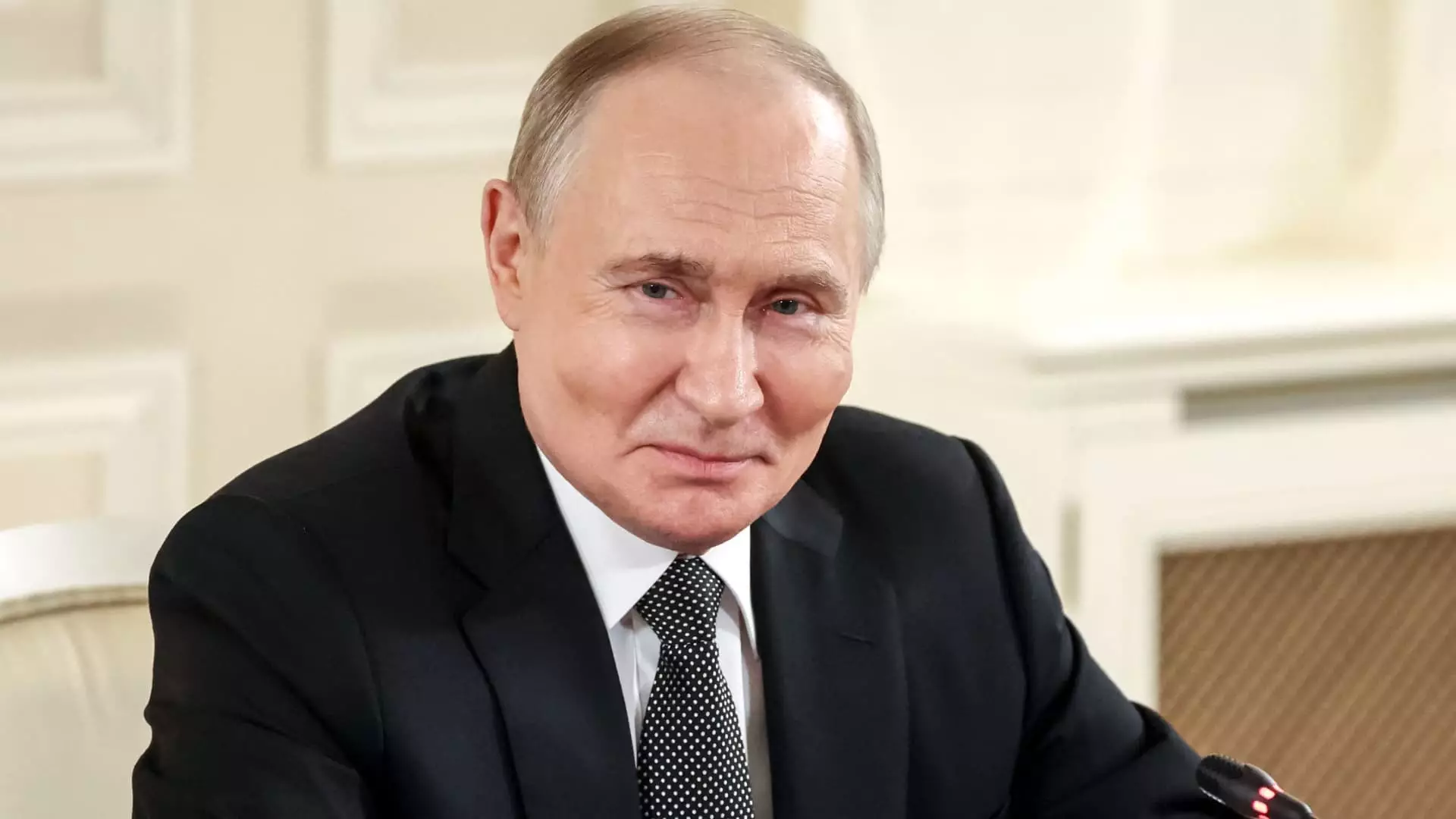When analyzing the recent remarks of President Donald Trump regarding Vladimir Putin and the ongoing Ukraine conflict, it becomes apparent that there is a troubling disconnect between perception and the complex realities of geopolitics. Trump’s candid admission of dissatisfaction with Putin, paired with vague accusations and defensiveness, underscores a broader tendency among leaders to simplify conflicts or ascribe blame based on limited understanding or political convenience. This approach not only diminishes the severity of the situation but also risks undermining the kind of leadership necessary to navigate such crises responsibly.
His criticism of Putin’s actions and the notion that the Russian leader is merely “throwing bulls–” at the United States reveals a dismissive attitude that borders on naivety. Leaders should exercise caution when attributing such dismissiveness to seriousness; it trivializes the human tragedy involved and overlooks the strategic complexities that Putin’s actions embody. By dismissing Putin’s motives or tactics with colloquial frustration, Trump misses the opportunity to contextualize the conflict — a mistake that any responsible leader should avoid, especially in a situation as delicate as Ukraine.
The Hazardous Politics of Blame-Shifting
Trump’s attempt to shift blame onto his predecessors, Obama and Biden, for Putin’s invasion demonstrates a common yet problematic political tactic: using historical narratives as scapegoats rather than engaging with current realities with maturity and nuance. It’s easy to scapegoat, but it’s far more challenging to acknowledge the intricacies of diplomatic failure or misjudgments that led to an escalation. This kind of rhetoric fosters a dangerous complacency—distracting from the urgent need to present cohesive, pragmatic policies that prioritize human lives over partisan gains.
Furthermore, Trump’s claim that the war “turned out to be tougher than anyone anticipated” appears to be an oversimplified excuse that underestimates the resilience and strategic calculation of Russia. Military aid to Ukraine is a complex but necessary response that defies simplistic narratives of escalation. The reckless underestimation of such support as a mere “problem” or “distraction” disregards the importance of standing firm and providing consistent backing against authoritarian aggression. This leniency towards Putin’s tactics can have dire consequences if it emboldens other authoritarian regimes.
Leadership in Chaos: Misguided Optimism and Cynicism
The most concerning aspect of Trump’s recent statements is his evident cynicism coupled with misplaced optimism about diplomacy. His assertion that Putin is “very nice all the time” yet ineffective in actual negotiations reveals an attempt to portray a diplomatic failure as personal or superficial, neglecting the real strategic and ideological underpinnings of the conflict. Leaders should approach such crises with clarity and integrity, recognizing that diplomacy—when genuine—is rooted in understanding, not in dismissive cynicism or superficial charm.
Finally, Trump’s evaluation of the July call with Putin as “disappointing” indicates a troubling tendency to judge diplomacy through emotional reactions rather than strategic insight. Effective leadership requires resilience, patience, and an understanding of international power dynamics—attributes sorely lacking if frustration dominates one’s outlook. A responsible approach would involve acknowledging the complexity of negotiations and maintaining a steady focus on human rights and security, rather than resorting to blame or dismissiveness rooted in personal grievance.
Leadership during international crises calls for humility, depth of understanding, and unwavering commitment to human dignity. The oversimplifications and cynicism expressed in Trump’s remarks expose a dangerous underestimation of the stakes involved—reminding us that true leadership demands more than provocative soundbites; it demands steady, informed, and compassionate action.


Leave a Reply